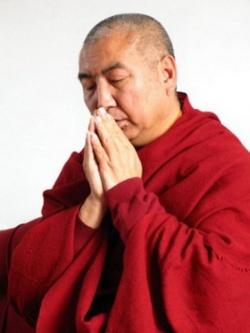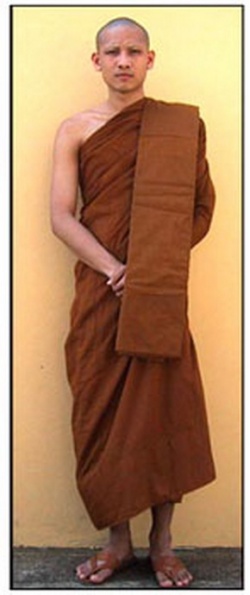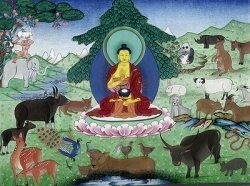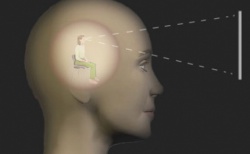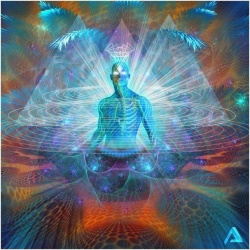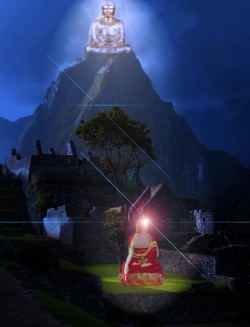Difference between revisions of "Idiot's Guide to Insights and Experiences"
(Created page with " <poem> Inspired by Kenneth Folk's "An Idiots Guide to Dharma Diagnosis". My attempt to summarize some of the insights and experiences I've gone through. (if...") |
m (Text replacement - "[[[" to "([[") |
||
| (4 intermediate revisions by 2 users not shown) | |||
| Line 1: | Line 1: | ||
| − | + | {{DisplayImages|2762|2504|1686|506|3875|4191}} | |
<poem> | <poem> | ||
Inspired by Kenneth Folk's "An Idiots [[Guide]] to [[Dharma]] Diagnosis". My attempt to summarize some of the [[insights]] and [[experiences]] I've gone through. (if someone has a better way of expressing, please share :)) Also do note that there is no strictly fixed linear way of progression - the insights/experiences can unfold in somewhat different order for different [[people]]. | Inspired by Kenneth Folk's "An Idiots [[Guide]] to [[Dharma]] Diagnosis". My attempt to summarize some of the [[insights]] and [[experiences]] I've gone through. (if someone has a better way of expressing, please share :)) Also do note that there is no strictly fixed linear way of progression - the insights/experiences can unfold in somewhat different order for different [[people]]. | ||
| Line 42: | Line 42: | ||
| − | And so on for the [[fetters]] which are terminated on the remaining [[three paths]]. The [[once-returner]] [[path]] terminates the gross [[fetters]] of [[desire]] for [[sensual pleasure]] ([[kāmacchanda]]) and [[aversion]] (vyāpāda/byāpāda). The [[non-returner]] [[path]] terminates the secondary [[fetters]] of [[desire]] for [[sensual pleasure]] ([[kāmacchanda]]) and [[aversion]] (vyāpāda/byāpāda). The [[arahant]] [[path]] terminates the [[fetters]] of [[passion]] for [[form]] | + | And so on for the [[fetters]] which are terminated on the remaining [[three paths]]. The [[once-returner]] [[path]] terminates the gross [[fetters]] of [[desire]] for [[sensual pleasure]] ([[kāmacchanda]]) and [[aversion]] (vyāpāda/byāpāda). The [[non-returner]] [[path]] terminates the secondary [[fetters]] of [[desire]] for [[sensual pleasure]] ([[kāmacchanda]]) and [[aversion]] ([[vyāpāda]]/[[byāpāda]]). The [[arahant]] [[path]] terminates the [[fetters]] of [[passion]] for [[form]] ([[existence]]) ([[rūparāga]]), [[passion]] for [[formless]] ([[existence]]) ([[arūparāga]]), [[conceit]] ([[māna]]), [[restlessness]] ([[uddhacca]]), and [[ignorance]] ([[avijjā]]). |
(Realization/Experience) One [[Mind]]: I am this [[boundless space]] of [[awareness]], and all forms/thoughts/perceptions are indistinguishable from that field, no inside/outside. Subject-Object {{Wiki|inseparability}}. All is Mind/Self/Awareness/ | (Realization/Experience) One [[Mind]]: I am this [[boundless space]] of [[awareness]], and all forms/thoughts/perceptions are indistinguishable from that field, no inside/outside. Subject-Object {{Wiki|inseparability}}. All is Mind/Self/Awareness/ | ||
| Line 50: | Line 50: | ||
Once one achieves the higher stages what happens to the [[Karma]] of that person?Will they be automatically be deleted?Can someone delete/remove/transfer the [[karma]] of other [[beings]]? | Once one achieves the higher stages what happens to the [[Karma]] of that person?Will they be automatically be deleted?Can someone delete/remove/transfer the [[karma]] of other [[beings]]? | ||
| − | THe [[reason]] for [[existence]] of [[life]] in [[Samsara]] is the [[karmic debt]] of all beings?When all creatures has achieved [[Nirvana]] then there won't be life?And [[Buddha]] slo speaks of mahapralaya(creation and [[dissolution]] of universe).In [[Hinduism]] it is done by [[Brahma]] and in [[Buddhism]] as i read it is attributed to natural [[cause]]. What happens to [[life]] then? | + | THe [[reason]] for [[existence]] of [[life]] in [[Samsara]] is the [[karmic debt]] of all beings?When all creatures has achieved [[Nirvana]] then there won't be life?And [[Buddha]] slo speaks of[[ mahapralaya]](creation and [[dissolution]] of universe).In [[Hinduism]] it is done by [[Brahma]] and in [[Buddhism]] as i read it is attributed to natural [[cause]]. What happens to [[life]] then? |
First of all you must understand that this map is just representative of my journey. It is not [[Buddha's]] map, or a map of [[Buddhism]]. Not all [[Buddhists]] must go through the same exact stages. | First of all you must understand that this map is just representative of my journey. It is not [[Buddha's]] map, or a map of [[Buddhism]]. Not all [[Buddhists]] must go through the same exact stages. | ||
| Line 71: | Line 71: | ||
| − | When the previous [[universe]] is destroyed, it is destroyed only up to the level of the third [[form realm]]. All remaining [[sentient beings]] [[exist]] in the upper | + | When the previous [[universe]] is destroyed, it is destroyed only up to the level of the third [[form realm]]. All remaining [[sentient beings]] [[exist]] in the upper highest form [[realm]] (those who are not in the [[formless realm]], that is). Eventually, as their [[merit]] is exhausted, the [[winds]] created by their traces of [[karma]] generate an [[air]] [[mandala]] which begins the formation of a new container [[universe]]. As [[sentient beings]] have [[karma]] to be [[reborn]] in this and that place, this or that place appears to receive them. |
It is like a house with separate floors. Not all inhabitants can know whether the others are [[home]]. | It is like a house with separate floors. Not all inhabitants can know whether the others are [[home]]. | ||
Latest revision as of 06:54, 4 April 2016
Inspired by Kenneth Folk's "An Idiots Guide to Dharma Diagnosis". My attempt to summarize some of the insights and experiences I've gone through. (if someone has a better way of expressing, please share :)) Also do note that there is no strictly fixed linear way of progression - the insights/experiences can unfold in somewhat different order for different people.
(Realization+Experience) Non-doership: No control or doership over things, everything is spontaneously happening on its own without effort. Does serious damage to notions of free will. When one sees through the notion of 'self as doer', one realizes freedom does not lie in 'free will' but lies in releasing sense of doership/control which is a subtle aversion going against the flow of happening, contraction, sense of self, holding. One finds joy, freedom and release from 'let live' and 'surrendering'.
(Experience) I AM: I have a glimpse of myself as a sense of changeless Beingness or Awareness or Witness behind everything.
(Realization) I AM: I am EXISTENCE! Doubtless certainty. Sat-chit-ananda: beingness-consciousness-bliss. I am the ground of Being out of which everything emerges. Self-Realization.
(Deconstruction+Experience) Impersonality: I am the one divine life living myself in the body, no different from the life expressing in the trees, in the other human being, or spinning the planet. Dissolving 'self' into a state clean of ego/personal self, not-mine sort of sensation. God-Realization.
(Experience) Intensity of luminosity: Wow, amazing, the textures of touch, the taste of food, the colours and shapes so wonderfully alive and intense!
(Realization/Experience) One Mind: I am this boundless space of awareness, and all forms/thoughts/perceptions are indistinguishable from that field, no inside/outside. Subject-Object inseparability. All is Mind/Self/Awareness/etc.
(Experience) No Mind: Only sound. Only sight. Vividly manifest without background or any sense of self/Self. (Not even a greater 'awareness' being inseparable from forms) This state has the same effect as 'intensity of luminosity' except that all sense of a perceiver is obliterated, i.e. no 'you' looking out from your body at the 'scenery' but only brilliant scenery.
(Deconstruction+Realization+Experience) Anatta: There never is/was a Source/Awareness/Self/Agent/Perceiver/Controller apart from manifestation! In seeing just the seen, no seer. Not only no self but no Self (caps) exists behind phenomena. No Subject. After *realization* of Anatta as the Nature of experience (empty of background subject), the experience of No-Mind becomes an effortless natural state rather than peak experience. Then one sees that no-mind is both wonderful and yet nothing special, as it simply is the natural state of phenomena when released from the extra imputation of Self/observer behind it, it is experienced as the ordinary state of phenomena rather than the 'Wow' factor accompanied by peak No Mind experiences prior to Anatta.
(Deconstruction+Realization+Experience) Mind-body drop: No shapes/boundaries of body, just centerless boundless vibrating energies! Body/self/things as an imputation dissolves through deconstructive insight.
(Deconstruction+Realization+Experience) Groundlessness: No persisting ground, no Here/Now, no coordinating agent, disjoint bubble-like self-releasing thought!
(Deconstruction+Realization+Experience) Maha +A: Totality (dependencies) walking, breathing, seamless process. Mind-body drop transforms into Dharma Body. Six senses reconstruct into one suchness, whole universe in an atom, all nodes in one indra's node.
(Deconstruction+Realization+Experience) Karmic Propensities: Karmic propensities are never hidden, totally exerted! Feel the realness of the amazing creation of the Subject/Object fiction manifesting as one's given experiential reality. Realize the 12 afflictive links of dependent origination where ignorance manifests the whole mass of grasping and suffering.
(Realization+Experience) Emptiness -A: Directly tasting thought/perceptions as clarity without background as basis, further penetrate its nature, that very appearance which dependently originates has never arisen, like a dream or reflection, like a burning flame.
At each phase there is a release of certain bonds, certain attachments. Releasing conceptual thoughts we have direct experiential realization of luminosity of Mind - I AM. Releasing subject/object and self/Self we experience anatta... and so on. Insights allow that release. That is how it happens.
Anatta and emptiness allows a glimpse of Nirvana, it leads to the termination of the lower fetters (such as stream entry), but not yet the complete termination of fetters. I do not know of anyone in this day and age that I am convinced have attained that complete termination, however, it is certainly possible.
Nibbāna is a negation. It means extinguishment. With the fruition of each of the four paths one knows the termination of the fetters which are eliminated by that path. This termination is nibbāna appropriate to that path. The Paṭisambhidāmagga:
How is it that the discernment of the termination of continuance in one who is fully aware is gnosis of full extinguishment (parinibbāna ñāṇa)?
Through the stream-entry path he terminates identity view (sakkāyadiṭṭhi), doubt (vicikicchā), and mistaken adherence to rules and duty (sīlabbataparāmāsa).... This discernment of the termination of continuance in one who is fully aware is gnosis of full extinguishment....
He causes the cessation of identity view, doubt, and mistaken adherence to rules and duty through the stream-entry path.
And so on for the fetters which are terminated on the remaining three paths. The once-returner path terminates the gross fetters of desire for sensual pleasure (kāmacchanda) and aversion (vyāpāda/byāpāda). The non-returner path terminates the secondary fetters of desire for sensual pleasure (kāmacchanda) and aversion (vyāpāda/byāpāda). The arahant path terminates the fetters of passion for form (existence) (rūparāga), passion for formless (existence) (arūparāga), conceit (māna), restlessness (uddhacca), and ignorance (avijjā).
(Realization/Experience) One Mind: I am this boundless space of awareness, and all forms/thoughts/perceptions are indistinguishable from that field, no inside/outside. Subject-Object inseparability. All is Mind/Self/Awareness/
This I believe is what the Hindu philosophy refers to as merging in Brahman.In Buddhism is there also a concept of Brahman or all pervading intelligence?That you reach this stage and then trancend it to understand its too emptiness?
Once one achieves the higher stages what happens to the Karma of that person?Will they be automatically be deleted?Can someone delete/remove/transfer the karma of other beings?
THe reason for existence of life in Samsara is the karmic debt of all beings?When all creatures has achieved Nirvana then there won't be life?And Buddha slo speaks ofmahapralaya(creation and dissolution of universe).In Hinduism it is done by Brahma and in Buddhism as i read it is attributed to natural cause. What happens to life then?
First of all you must understand that this map is just representative of my journey. It is not Buddha's map, or a map of Buddhism. Not all Buddhists must go through the same exact stages.
Secondly, awakening in Buddhism starts from anatta. Anatta, D.O, emptiness, these are the content of Buddhism's awakening or enlightenment (awakening is a better word and is used by Buddha, enlightenment is a modern western term).
In other words, realization of I AM, non doership, One Mind etc before anatta can be found in other religions. Buddha never really talked about I AM or One Mind in the Pali suttas and only mentioned briefly about the Luminous Mind (but does not reify it in terms of an ultimate Self). The understanding of One Mind is the Hindu Brahman, that is correct. This is why it is not the definitive view or nature of mind in Buddhism. Not to mistaken that with Buddhist view and understanding. But it is a phase that many people have gone through.
Thirdly there is no denial of clarity, awareness, intelligence in Buddhism. It is just that we must have right understanding of that. Intelligence in Buddhism is not a universal source and substratum or Ultimate Self or a God governing or controlling all things. There is no such agent, no such controller, besides transient manifestation that dependently originates. Yet there is an intrinsic quality of intelligence, clarity, vitality to all vivid manifestation in life. It is not something separate or apart from the transients manifestation or sensations unfolding moment by moment, nor something unchanging, independent, with self-existence etc. It is empty of self. It is tasted in moment to moment manifestation as long as the imputation of a self/Self is seen through and dissolved via insight. Emptiness does not somehow cancel out the intelligence/clarity but allows us to see the true face of it -- as non-arising vividly dancing transient energies fully manifesting without a hidden essence or changeless identity, and not a hiding unmanifest 'ghost' or background Self behind all things.
Now, when a person becomes fully enlightened, they can still experience the effects of previous karma. But they no longer create new samsaric karmas which ripen into effect as future rebirths. Beings fully liberated from afflictions like arahants or Buddha are already free from the cycle of samsara. They are free from the three poisons of passion, aggression and delusion, and therefore they do not create new karmas driven by these three afflictions that manifest as rebirths in the six realms of samsara. Their actions are only manifested out of non-greed (or generosity), non-aggression (or compassion), and non-delusion (or wisdom), they do not manifest or result in samsaric rebirth and suffering.
However they experience the effects of previous karmas. For example, a Buddha still get migraine headache for three days because in a past life he lived in a fishing village and one day he helped one of them to hit the fish on its head to kill the fish. This could result in very very bad karmic result, however, as a Buddha he is only experiencing lightened effects of karma that manifested as three days of headache. Also, Mogallana who was an arahant got killed or stoned to death, also a result of bad karmas from past life where he killed his mother (or was it father) and some remnants of the bad karma still played out.
In some ways yes you can say our life is the result of karmic debts. When you achieve Nirvana in this life, karmic debts still manifest but in a lighter way, until you attain Parinirvana. Even if pain occurs you do not suffer mentally, only bodily pain is felt but no mental suffering (or as Buddha says, struck with one dart the wise does not experience a second dart).
In Buddhism, our universe has its natural causes, which may be partly physical but also driven by the collective karmas of sentient beings as I understand it.
Also Loppon Malcolm wrote before:
When the previous universe is destroyed, it is destroyed only up to the level of the third form realm. All remaining sentient beings exist in the upper highest form realm (those who are not in the formless realm, that is). Eventually, as their merit is exhausted, the winds created by their traces of karma generate an air mandala which begins the formation of a new container universe. As sentient beings have karma to be reborn in this and that place, this or that place appears to receive them.
It is like a house with separate floors. Not all inhabitants can know whether the others are home.
We all inhabit the same universe, the universe comes about because of our collective actions. It is as if we all build one house, but then we live on separate floors, using separate entrances.
I would suggest that you have begun, as you have before, and are continuing on your path. Your questions and doubts are what germinates the seeds from which all knowledge sprouts. Cultivate them and be critical, yet studious, happy, yet mindful, patient, yet tenacious. Be compassionate.
As such, one should be reminded that the essence of Buddhism isn't 'Buddhist', it's universal, because it touches the basic mechanisms of the human mind. Buddhism considers that each person has to start where they are and use the methods that match their nature and mental capacities. Such flexibility and vastness of possibilities is useful to all, without Buddhism renouncing its basic values. From a certain perspective, there are people who see Buddhism as a particularly lucid explanation of life's problems. I would suggest Buddhism is compatible with everyone's deepest aspirations. What Buddhism could help to change is the overall attitude that consists of giving priority to 'having' over 'being', something it identifies as not very healthy. It's a matter of establishing a new order of values, giving priority to the quest for inner well-being.
As such, I am convinced that Buddhist ideas could make a tremendous impact on culture and give a new life to the way we view 'religion'. As a tradition that so closely combines study with inner experience, Buddhism could help people see how basic qualities like love, compassion, tolerance and patience can actually be cultivated, and that it's possible to master one's own mind and tame wild thoughts and emotions that destroy our own and others' inner peace. However, this is not a matter of inferring the tenants of Buddhism so that one is more confortable with a mere idea or spectulation. Whether we like it or not, the goal is to dissolve attachment to ego, and it would be a great loss if people tamper with the tried and trusted methods that allow that goal to be attained. As such, it would be fruitless to put particular aspects of the teachings gradually to one side because they don't happen to correspond to our present ways of seeing things. Similarly, it would be fruitless to unequivocally accept the teachings without first applying methods of verification.
In this manner, it's not a matter of adapting the teachings of Buddhism, but of being sure to understand its essence by proper appoach and application of contemplation - which doesn't need any adaption, for it corresponds to the deepest preoccupations of anyone, whoever, wherever and whenever they might be.
